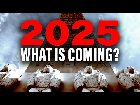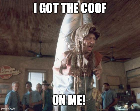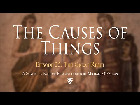One giant HONK for mankind!
I like to check Wikipedia each day for their trivia tidbits. Today under “did you know…” I saw a link for a West Wing episode named “17 people.” The plot of that episode? The President has a serious illness and has kept it hidden from the public and most of his cabinet. 🤔 Wiki Link
Looking for information on how to make FOIA requests, be it to school districts, the feds, or local governments. Any specific forms or templates to use? Anything that needs to be in the request?

This documentary dropped this past November and is available to watch on Amazon prime. I was absolutely blown away by this documentary that shows how the founding principles of this nation were founded not upon the enlightenment era, but from principles from the Christian reformation and beyond. From standardnewswire.com: “"The True Christian History of America" is a new documentary that explores the Bible-based Christian origins of the early American view of freedom, tracing the principles of liberty back to England, Magna Carta, and the great Reformation.
For many years, Americans have been taught in our schools and universities that the founding of our Republic was the result of the Enlightenment from France, or from the deists of that time. But is that truly the case? Did the Enlightenment first declare no taxation without representation? Or trial by jury? Were they the champions of free speech, or of the press? And why did Samuel Adams declare that the "reign of political Protestantism" would commence, just before signing the Declaration of Independence?
Furthermore, why did Judge Nathaniel Freeman, who served as a Brigadier General during the American Revolution, charge the grand juries in 1802 to respect "the Bible ... as of high authority in all our courts" and declared that the United States is a "Christian republic" if what secular humanists are telling us today is true?
One of the most startling revelations from the film, is that the concept of "government of the people" is not traced to Voltaire or the Enlightenment, but rather to John Wycliffe in the 14th century. It was Wycliffe who translated the Bible from Latin into Middle English in 1384 (something that was illegal at the time), and in the introduction wrote:
"This Bible is for a government of the people, by the people, and for the people."
Another important aspect to the storyline is the focus on the concept of "resistance to tyranny" as not only a right, but also the duty of Christian people. Examples are given from Article 61 of the Magna Carta, along with the writings of Martin Luther, John Knox, John Calvin and the Huguenots, along with Oliver Cromwell and the Puritans, who all embraced the Biblical examples of how the saints in centuries past resisted tyrants according to the will of God.
Nearly three hours in length, the film documents the quest for liberty begun by persecuted Christians living in Europe, which ultimately brought them to the new world. As Governor John Winthrop declared, America was to be not only a city on a hill, but also a "bulwark against the kingdom of Antichrist," opposing the anti-Christian powers of the world.”




